Question And Answer
Publications
Articles, publications, books, tools and multimedia features from the U.S. Institute of Peace provide the latest news, analysis, research findings, practitioner guides and reports, all related to the conflict zones and issues that are at the center of the Institute’s work to prevent and reduce violent conflict.
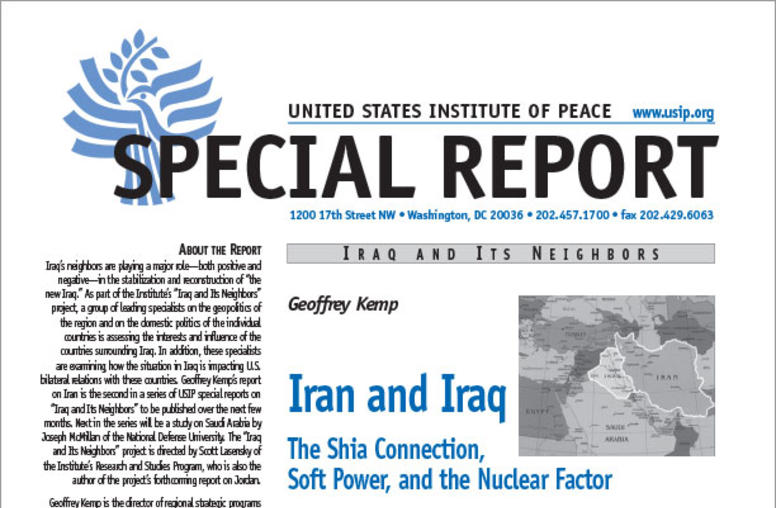
Iran and Iraq: The Shia Connection, Soft Power, and the Nuclear Factor
Summary Predominantly Shiite Iran emerges from the aftermath of Saddam Hussein's fall with considerable power and influence in Iraq as Iraqis themselves struggle to acquire a semblance of unity and forge a new political order acceptable to Iraq's three key groups: Shia, Kurds, and Sunnis. Iran's leaders meet with Iraq's most influential personality, Grand Ayatollah Ali al-Sistani; American diplomats do not meet with Sistani. Iraq's new elected leaders make visits to Tehran and negotia...
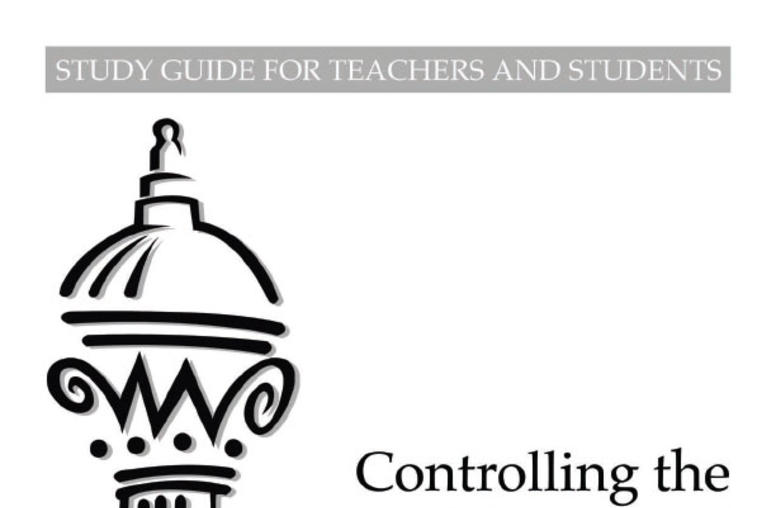
Controlling the Proliferation of Nuclear Weapons
This study guide assists teachers in increasing students' understanding of the prevalence and spread of nuclear weapons and familiarizes students with historic and contemporary measures to control nuclear proliferation and stimulates their thinking of potential strategies for doing so in the future.
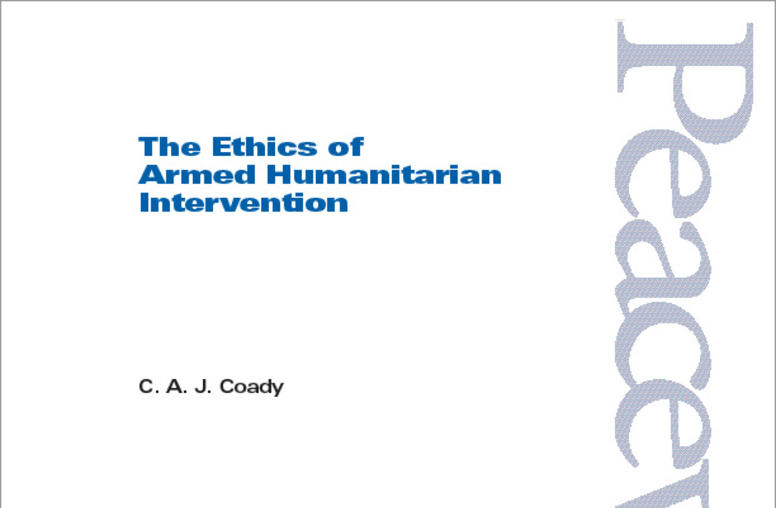
The Ethics of Armed Humanitarian Intervention
At the very beginning of the twenty-first century, two concerns ranked high on the military-political agenda of the Western world: humanitarian intervention and terrorism. This is an essay on the ethical issues surrounding the former.
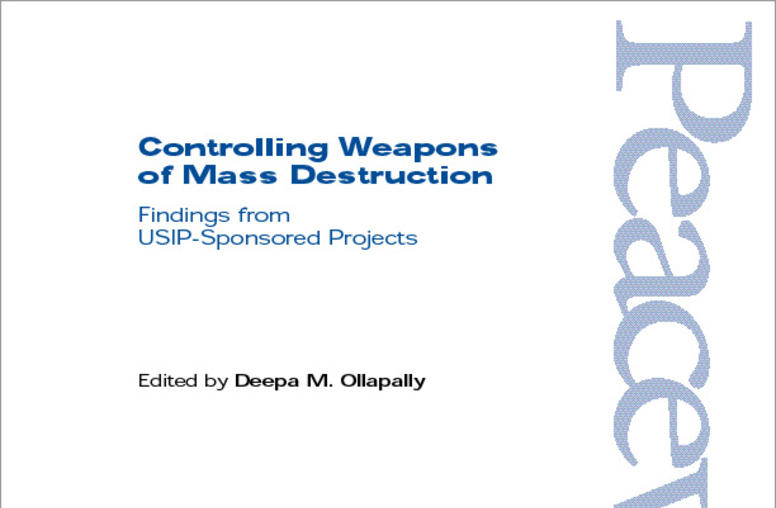
Controlling Weapons of Mass Destruction: Findings from USIP-Sponsored Projects
More than thirty years after the passage of the Nuclear Nonproliferation Treaty (NPT), the record is mixed on the effectiveness of the non-proliferation regime.
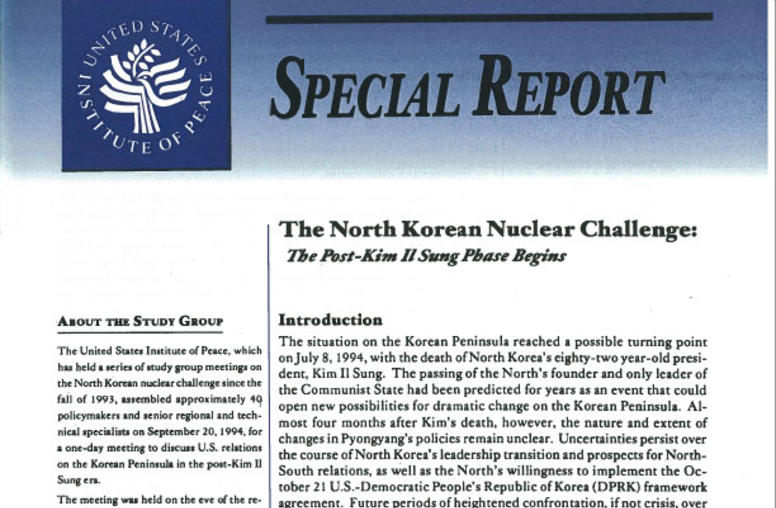
The North Korean Nuclear Challenge: The Post–Kim Il Sung Phase Begins
The situation on the Korean Peninsula reached a possible turning point on July 8, 1994, with the death of North Korea's eighty-two year-old president, Kim Il Sung. The passing of the North's founder and only leader of the Communist State had been predicted for years as an event that could open new possibilities for dramatic change on the Korean Peninsula. The United States, South Korea, and North Korea's other neighbors face significant challenges in determining policy adjustments that might...
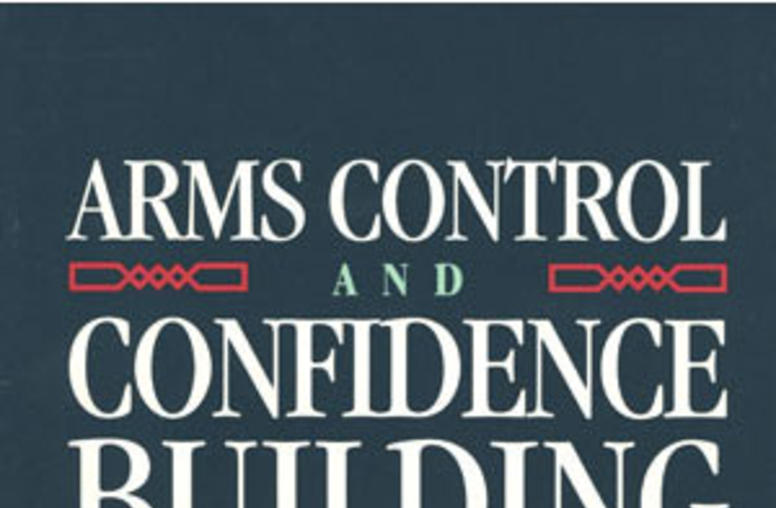
Arms Control and Confidence Building in the Middle East
Nine experts examine the East-West arms control experience to identify lessons that could be applied to the Middle East. The authors pinpoint specific near-term actions, particularly confidence-and-security-building measures, that might be explored now, whether or not they are linked to formal peace negotiations. Each chapter pairs a co-author who has detailed knowledge of a particular East-West arms control approach with a co-author who has extensive experience in the Middle East Region. ...
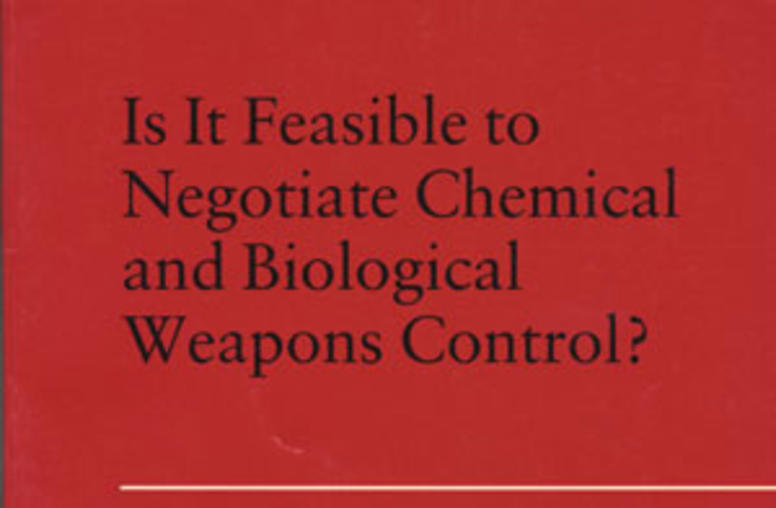
Is it Feasible to Negotiate Chemical and Biological Weapons Control?
A controversial proposal for the formation of an international authority that would monitor use of the "poor man's nuclear weapon" and assist countries under attack.